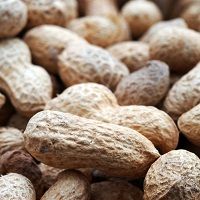Researchers Say Oral Probiotic Therapy Could Provide Cure for Peanut Allergies
Researchers from Australia believe the bacteria in yogurt can help alleviate the food allergy that's most likely to cause anaphylaxis, but other experts want more evidence.

Researchers from Australia believe the bacteria in yogurt can help alleviate the food allergy that’s most likely to cause anaphylaxis, but other experts want more evidence.
The study team recruited 60 young children with peanut allergies and randomized them between placebo and a combination of oral immunotherapy and the probiotic Lactobacillus rhamnosus. Children in the first group got “dummy pills” every day. Children in the second got an unchanging dose of bacteria, along with a daily dose of peanut protein that slowly grew from virtually nothing to 2 grams.
After 18 months, the researchers tested the kids to see how many of them could tolerate 4 grams of peanut protein without reaction. Just 1 of 28 kids in the placebo group (3.6%) — but 23 of 28 kids in the study group (82.1%) — passed that final test.
“It appears that we have been able to modify the allergic response to peanut such that the immune system produces protective responses rather than a harmful response to the peanut protein,” said Mimi Tang in a news release. Tang is a professor at Murdoch Childrens Research Institute who led the study team.
The team’s paper created a stir when it appeared in the Journal of Allergy and Clinical Immunology. General-interest publications from around the globe declared that the researchers had found a “cure” for peanut allergies.
Other researchers see reason for hope — but also reason for caution.
Among the biggest of their concerns was the decision to test bacteria and immunotherapy against a simple placebo rather than a combination of placebo and immunotherapy. Many trials have already shown that immunotherapy alone builds tolerance in many patients, so a study of immunotherapy plus bacteria should have been designed to show how much extra value (if any) the bacteria provided above and beyond immunotherapy.
The actual study design, however, makes it impossible to say whether the bacteria added anything or whether the trial group could have fared as well on simple immunotherapy.
Previous research into immunotherapy also suggests another potential weakness of the Australian study: time. Many patients who benefit from immunotherapy only benefit temporarily. Whatever immunity they develop begins to fade as soon as they discontinue their daily dose of allergens, and the patients end up, a few months or years later, worse off than they began: plagued by both serious allergies and false confidence.
The kids who participated in the Australian study typically underwent their final tests just 2 to 5 weeks after completing treatment, so while the study certainly shows that most of them managed to build up a significant amount of peanut tolerance, prior trials of immunotherapy suggest they may not be cured.
Indeed, the Australian researchers themselves specifically noted the need to keep following patients to see if the bacteria helped cement their progress into place or whether their gains would prove temporary.
They also warned members of the reading public against trying to cure their own children by feeding them yogurt and peanuts at home. Even if parents could convince their kids to duplicate the Lactobacillus dosage by eating 44 pounds of yogurt per day (the probiotic dosage in the study was the equivalent of eating 20 kg of yogurt per day), such experiments would still be dangerous.
“It is important to point out that this treatment must only be given under close medical supervision,” Tang said. “We are giving peanuts to children who are allergic to peanuts, and children did have allergic reactions.”